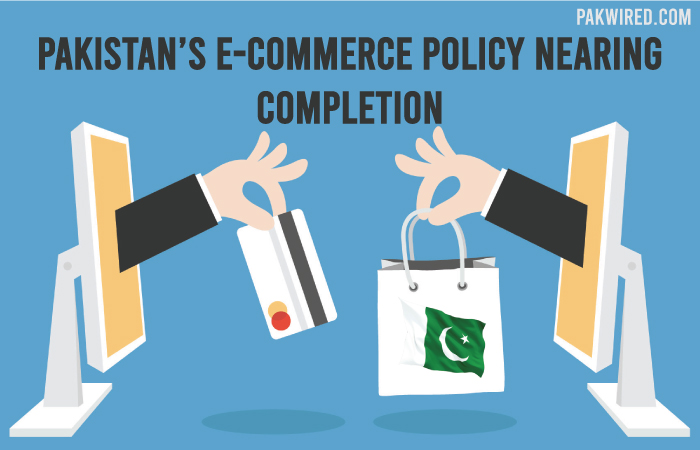Technology penetration and widely available internet connectivity have helped the the E-Commerce sector see astronomical growth in Pakistan. A lack of legislation and consumer protection however, can be identified in a major hurdle stopping the sector from reaching it’s true potential. The Government’s new draft e-commerce policy is a welcome step in the right direction. The document (link at bottom) is extensive and would be difficult to cover all of it in detail, however, we will cover the salient features in this article.
Key Areas and Proposed Solutions
E-Commerce Regulation and Facilitation
Issues
- Existing laws are confusing and overlap such as IP laws
- Consumer Trust and confidence is low
- Must have environment conducive to cross-border trade
- E-goods such as e-books, movies etc. not part of the import tax net
Proposed Recommendations
- Ministry of Commerce to establish an E-Commerce council that reviews the evolution of the sector and offer policy change recommendations. It can also work towards providing economic incentives for promoting the sector
- Minimise paperwork for import/export
- Follow international best practices for imposition of levies and customs duties
- All e-commerce companies to be registered with the SECP under a new category with a much simpler registration process
- Stakeholders to follow this code of conduct
- Public and private sectors to be encouraged to use an e-procurement model hopefully seeing a shift to fully digital procurement
Financial Inclusion and Digitisation
Issues
- Card-Not-Present Transactions not fully accepted through major banking institutions
- No bank is offering digital merchant on-boarding
- Lack of international payment gateways
Proposed Recommendations
- Offers and incentives are proposed for digital payments and discouragement of cash-on-delivery (COD) purchases. Transactions to be limited to Rs. 5000 PKR within 3 years and a zero COD payment offering after 10 years
- Establishment of certification for Freelancers by Ministry of Commerce and Ministry of IT
- SBP to offer guidelines for improving banking services for merchant accounts aiming to make it beneficial for both service providers and merchants
- SBP to work on providing a more conducive environment for international gateways.
Empowering Youth and SMEs
Issues
- Need for training
- Further access to good internet services
- Lack of public and private awareness of changing global manufacturing processes
Proposed Recommendations
- Identify and train 50,000 e-SMEs of remote areas of Pakistan
- Create e-commerce facilitation hub
- Collaborate with organisations to help get SMEs venture capital along with skill development
Consumer Protection
Issues
- Existing laws do not include digital transactions
- Lack of public awareness of the consumer protection laws that do exist
- Lack of efficient dispute resolution system
Proposed Recommendations
- Amendment of consumer protection – both Federal and Provincial to specifically address digital transactions
- Mandatory for stakeholders to display details of consumer protection laws on their websites
- Federal and Provincial governments to establish alternate dispute resolution (ADR) centers
- E-Courts to be established
Tax Structure
Issues
- Online marketplaces consider sales tax as a major hindrance to their growth
- Double taxation issues due to varying Provincial and Federal laws
Proposed Recommendations
- Create uniform tax rates taking Provincial and Federal rates as one
- Simplified tax returns
ICT Infrastructure and Telecom Services
Issues
- Though broadband penetration has increased over recent years, a high population still lack services
- Large gap between IT graduates and the IT industry
- Pakistan has only 13 technology parks and a handful of incubators. Those that exist lack funding and infrastructure
- Research & Development (R&D) has been a low priority for Pakistan
Proposed Recommendations
The recommendations for this subsection have been left out for now as these will be proposed by the Ministry of IT.
Logistics
Issues
- Digital and physical infrastructure lacking in many ways, no automated systems for transport / delivery.
Proposed Recommendations
- Drive to help businesses adopt logistics automation systems
- Ministry of Communications to work on National Logistics Policy
Data Protection & Data Localisation
Issues
- No Law in Pakistan to regulate transfer of data to third parties
- Data Localisation (requirement to keep data and process the data within the country it is generated) only mandatory for the banking sector
- Only 17 data centres in Pakistan – in comparison Singapore has 31.
Proposed Recommendations
The Ministry of IT is formulating a ‘Cloud Policy’ which aims to tackle the above issues.
Implementation
As mentioned above, the policy proposes an E-Commerce council which would meet at least twice a year and would comprise the following:
Public Sector Representatives:
Commerce Minister
Secretary, Commerce Ministry
Secretary, Finance Ministry
Secretary, Revenue Division
Secretary, IT Ministry
Secretary, Law & Justice Ministry
Secretary, Communications Ministry
Secretary, TDAP
Chairman, FBR Chairman, SECP
Provincial Chief Secretaries
Heads of all Provincial Revenue Authorities
Private Sector Representatives:
5 representatives from the SME sector
5 representatives from online marketplaces
5 representatives from Start-up and Micro-enterprises
PASHA
2 technology solutions companies
3 representatives from telecom companies engaged in facilitating mobile wallets
2 representatives from large enterprises
3 representatives from research institutions
Call for Feedback
It is great to see an e-commerce policy in formation and it is believed the industry and consumers will welcome the move. It seems to tackle the issues at the core which would translate into a conducive environment ripe for public acceptance if recommendations are followed. If you wish to read the full draft which includes further details on the propositions and more by clicking here.
If you are an e-commerce stakeholder you can provide feedback by clicking here.


